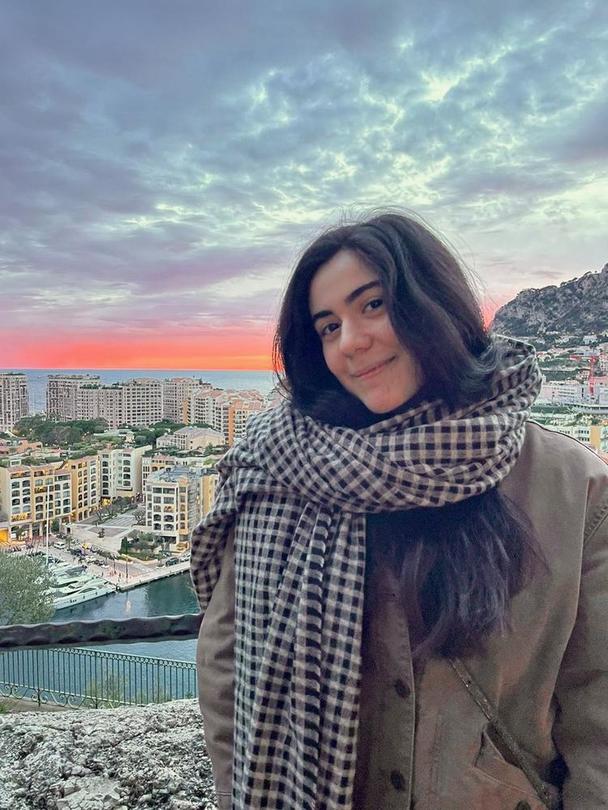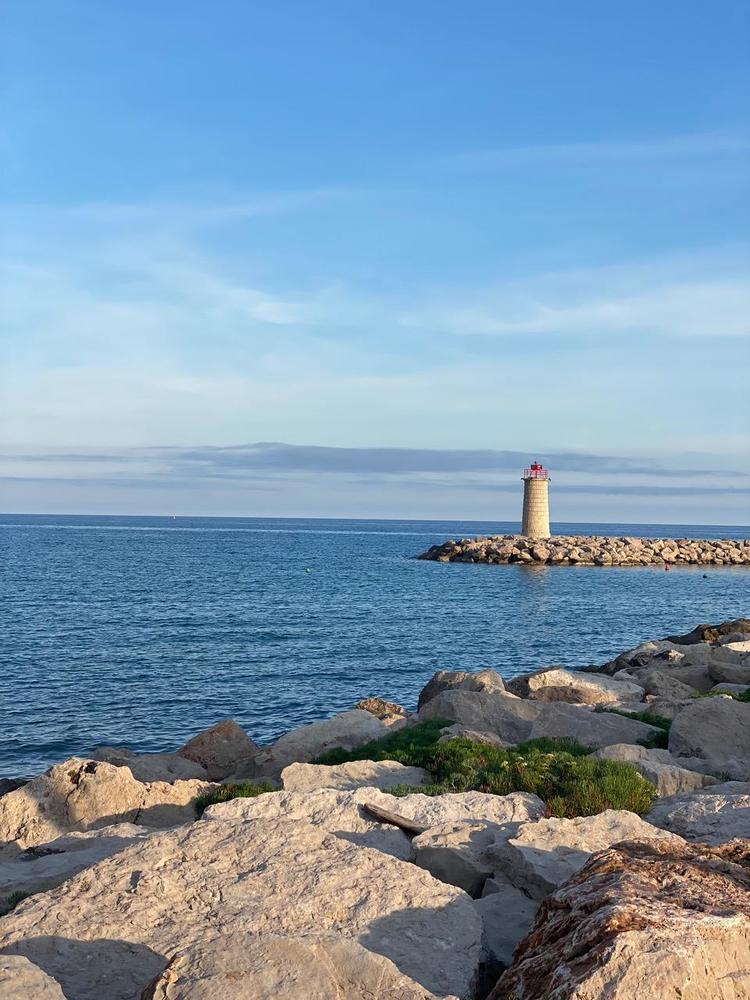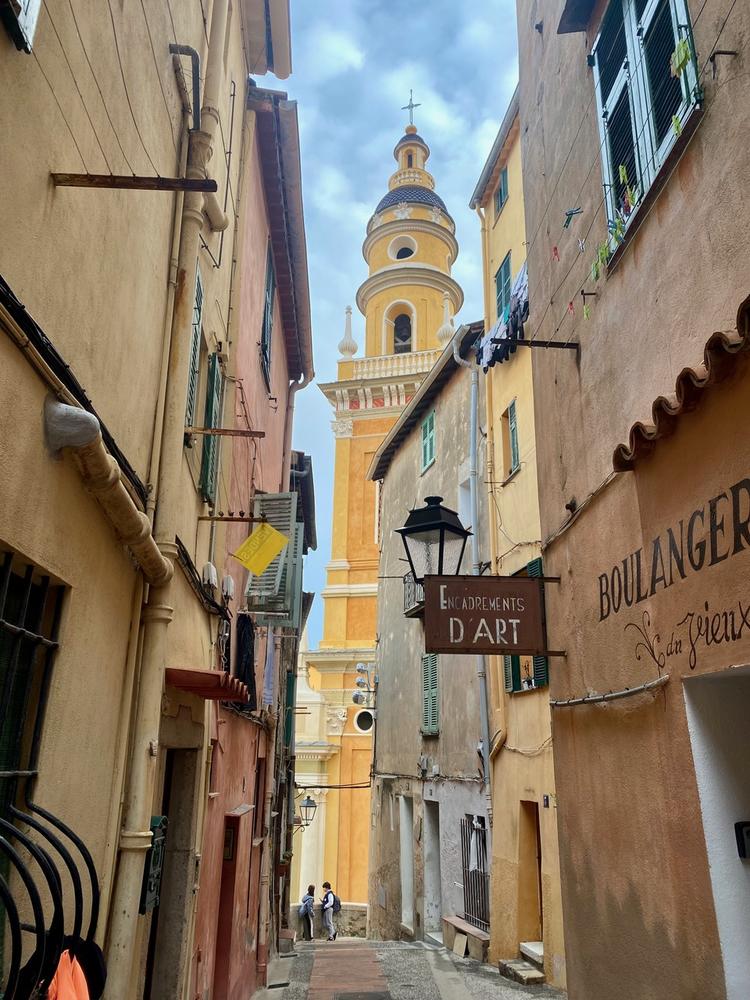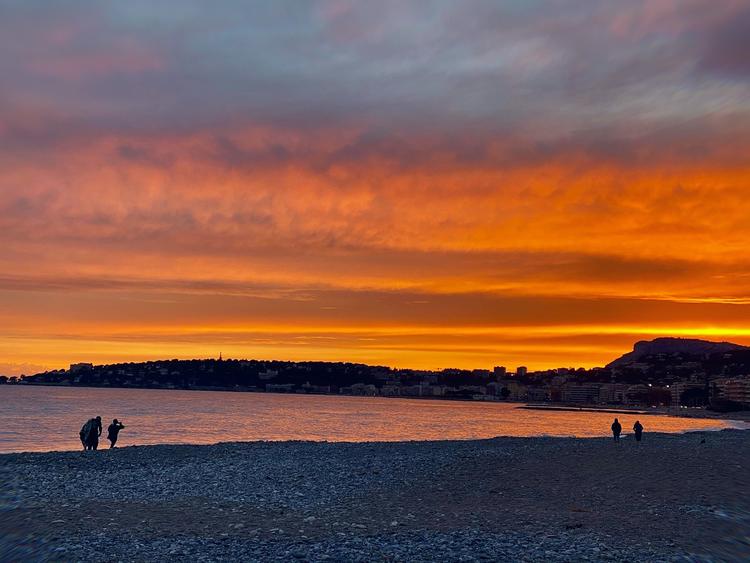Student Voices: Studying Abroad with Mikaela Avakian '24

As a FIT concentrator pursuing a combined track in French and Politics, studying at Sciences Po has always been a dream of mine—and one that came to fruition last year through the gracious support of my professors and advisors at Princeton!
Sciences Po (or L’Institut d’Études Politiques de Paris) stands out among France’s prestigious universities for its breadth and depth of instruction in the humanities and social sciences. Founded in 1872 to give French politicians better training for contemporary political issues, the university is renowned for its immersive, multidisciplinary approach to undergraduate education, as well as its many notable alumni, including Emmanuel Macron, Pierre Trudeau, Marcel Proust, and George Pompidou. Today, the university boasts seven undergraduate campuses across France.
I elected to spend my semester on the Menton campus, specializing in the politics, society, and culture of the Mediterranean, Middle East, and North Africa. My study-abroad advisers at OIP (Office of International Programs) coached me through applying for my visa, securing funding, finding housing, pre-approving my courses, and reaching out to the Sciences Po administration. I was notified of my acceptance in mid-November and, in a relatively short period, secured lodging for my stay in southern France.
In early January, I began the process of démenagement into my fifteen square meter beachside studio, meters away from the longtime dwelling of French filmmaker Jean Cocteau. Arriving in Menton, I understood what had drawn Cocteau to this place—watching the silver, rippling waves of the Mediterranean during the waterfront train from Nice to Menton was nothing short of cinematic. Menton itself is a quaint and colorful ville-marinière nestled neatly on the chin of France (pun intended). In proximity to San Remo, Monaco, and Nice, it is perfectly positioned for those wanting to split their time between Italy and France. As I found out, Mentonnais/Mentonasques can conveniently shop in the Ligurian city of Ventimiglia (two stops from the Menton-Garavan station), where fresh produce and bulk items are much cheaper. But bring your passport as you’ll be crossing an international border!

The lighthouse at Menton
The Sciences Po campus (established in 2005) is situated in the heart of the Vieille Ville, overlooking the frothy turquoise shores of the Plage des Sablettes, an excellent waterfront locale to grab a morning café and chocolatine on your way to class. According to Aurélie, my favorite greengrocer in the farmer’s market of Les Halles (who gives Sciences Po students an extra discount on fresh fruits), the campus’ principal building was repurposed from what used to be the main hospital, once run by “a convent of strict and pious Catholic nuns.” As I found out, several of the town’s locals were born in what is now the university campus. With less than 400 students, the Menton campus (or umma Mentoniyya, as it is affectionately known) is one of the tightest-knit undergraduate cohorts. In my experience, it was a very welcoming environment with a large proportion of international and exchange students in attendance, who made it a priority to help newcomers orient to campus culture. “Citrus, sun, and politically-minded fun” was the student motto, which certainly echoed in my own academic experience.
As an exchange student, I took six courses in the French track on subjects ranging from ‘French Refugee Law’ to the ‘Modern State of Israel’, ‘Muslim Architecture’ and ‘Contemporary Environmental Policy Transformations in the Middle East’. The lectures were highly engaging, and I felt comfortably competitive among my peers, doing my best to contribute to class discussions and observe the differences between French and American pedagogical approaches to teaching, essay writing, and research, which I found very interesting. However, the highlights of my academic experience were by far the extracurricular colloquiums I attended. Throughout the semester, I participated in a handful of lectures moderated by high-profile diplomats, heads of state, and political party members like Samy Amine Gemayel, a member of the Lebanese parliament and leader of the Kataeb party, and former French president François Hollande. The discussions skimmed several controversial topics and incited exciting debates, but I most looked forward to the informal talks that took place after the lectures when undergraduates would gather in hordes outside the campus gates to meticulously critique and reflect on what was said in the lecture. It was marvelous, and somewhat disorienting to discuss grave matters of public policy and international governance while enveloped in the velvety rafales (winds) of the French Riviera and the lemony hues of Menton’s municipal architecture; to ponder renewable energy and urban development in Saudi Arabia surrounded by the musty smell of medieval Grimaldian buildings; to recite verses of Tasavvuf Şiiri (mystical Turkish poetry) to the tolling bells of the Saint Michel Basilica in the distance

Saint Michel Basilic.
Even so, Menton proved to be a nurturing environment for my studies and language practice. From January to early March, during the tourist ‘off-season’, I enjoyed meeting locals, pinpointing my favorite cafés/study spots, and integrating myself within my academic cohort. In early February, as the city began its fastidious preparations constructing massive parade floats (made of local lemons) for the Fête du Citron, I crossed paths with many travelers and families participating in the week-long celebrations and activities hosted by the town council. As such, I was able to find comfort in a community of locals that allowed me to explore and excavate my fascinating surroundings. While Menton is deceptively soporific in its coastal quietude, it has a rich and checkered Franco-Italian history that discreetly seeps into its zesty coastal cuisine and the slight ‘southern-drawl’ of the locals. The town has many hidden aspects I had the privilege of uncovering during my five-month stay: winding medieval tunnels, watchful eyes of Catholic saints and icons carved into the sides of buildings, haphazardly marked graves of Senegalese gentry from the First World War, centuries-old messages scrawled in an indecipherable Mentonasc on city walls… but alas, I’ll end here, leaving some room for future students to make their own discoveries!

Sunset at Menton
To any undergraduates in the FIT department, I recommend you supplement your Princeton coursework with a similar study abroad opportunity (if not this same one). In my own experience, studying in Menton was a fortuitous opportunity to explore a cross-section of my academic interests in Politics, the Middle East, and French language, culture, and society. Moreover, it was an excellent opportunity to practice my language skills in a supportive environment outside the classroom. After all, what’s better than citrus, sun, and academically rigorous fun?
